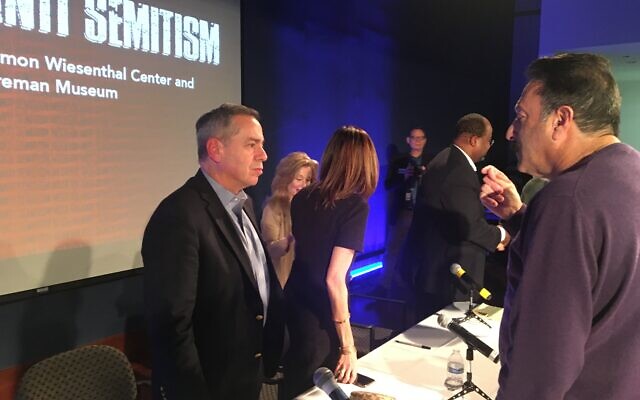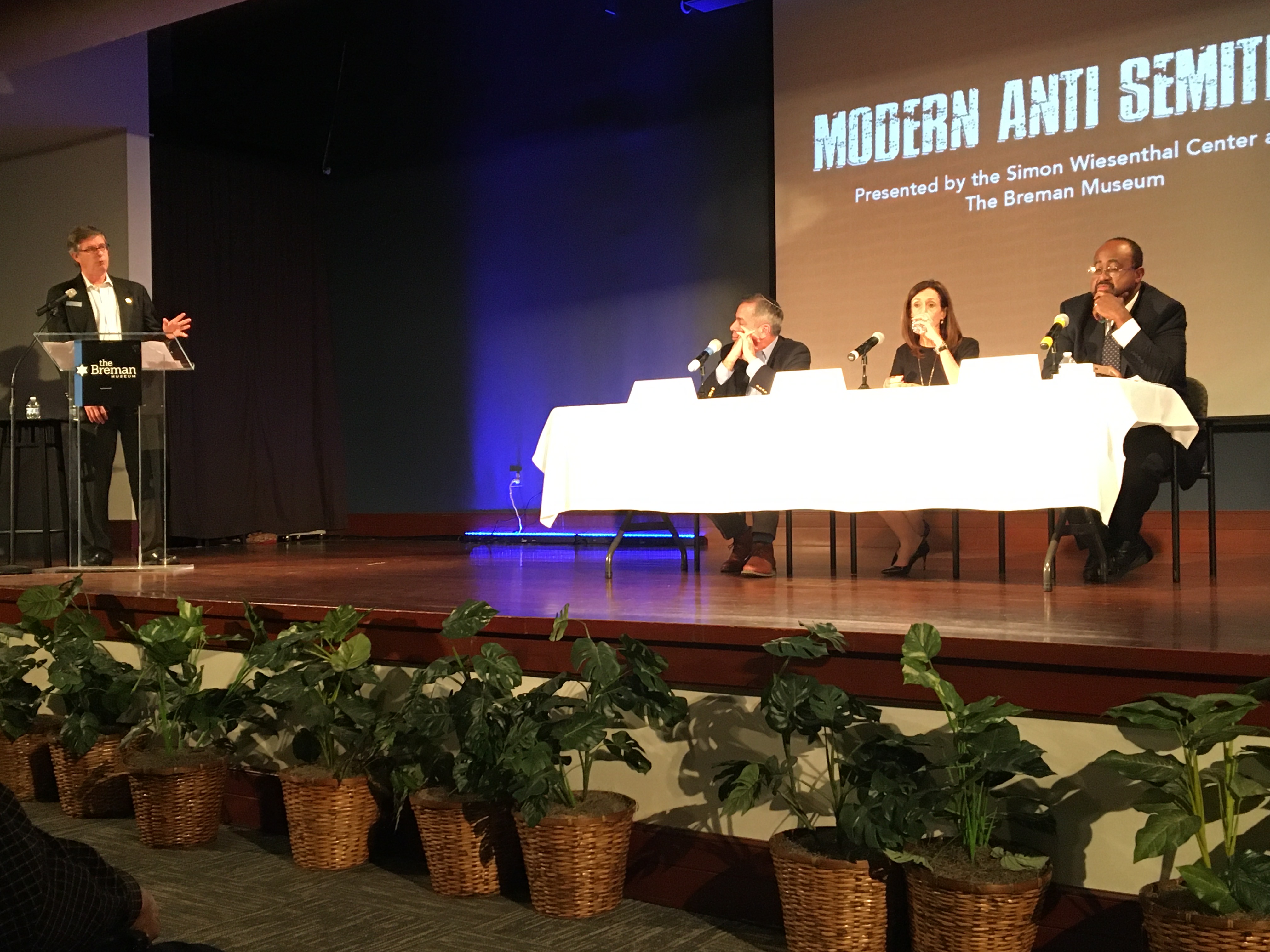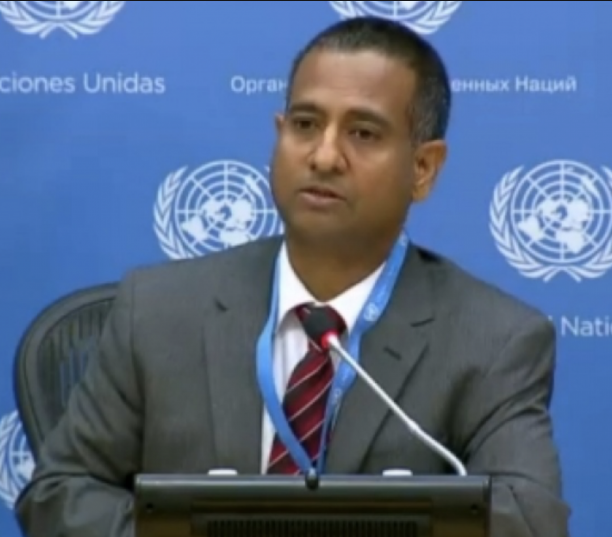Breman Anti-Semitism Program Urges Action
AJT owner and publisher Michael Morris orchestrated a discussion at the William Breman Jewish Heritage Museum on Nov. 4.

The complex and often confusing new world of hatred against Jews and others and how to take action against it was explored in a program at The William Breman Jewish Heritage Museum Monday.
The program, “Modern Anti-Semitism,” focused on how anti-Semitism in the world is manifested on college campuses, the internet, in Eastern and Western Europe and in violence against Jews and Israel.
Participating in the discussion were Mark Weitzman, director of government affairs for the Simon Wiesenthal Center in Los Angeles, Alison Pure-Slovin, Midwest director of the Wiesenthal Center and Patrick John, president of The Decalogue Society of Lawyers, a group of mostly Jewish attorneys in Chicago.
Much of the evening’s panel discussion, led by AJT Publisher Michael Morris, dealt with how Jews and others can grapple with new expressions of anti-Semitism, which have proliferated on the internet and in everyday political life in the U.S. and elsewhere.

Weitzman, who also heads up Wiesenthal’s Task Force Against Hate and Terrorism, advised quick action in response to public incidents of hatred, particularly when they involve politics.
“Let your legislator know that it’s important,” he counseled, “and let them know when they have stepped over the line. Personally, I am tired of having anti-Semitism used as a political tool. Get the so-called progressives to call out anti-Semitism on the left and get the so-called conservatives to call it out on the right. You can make that happen by letting them know what you demand, what you require of them.”
John, who is the first African American and non-Jewish president of the Decalogue, traced his transformation as an activist to his realization seven years ago that the roots of modern anti-Semitism are generally the result of the anti-Semitism that was incorporated into Christianity. Much of that began almost 1,700 years ago when the religion was formally adopted by the Roman Empire.
Overcoming those deeply held biases, he advised, often means developing bonds between Jews and non-Jews, particularly with African Americans who have a profound understanding of racial hatred.
“You’ve got to build alliances,” he told the audience at The Breman. “For me it was a no-brainer. You have branches of the NAACP, join one. There are black churches here, visit one. We have to start making alliances with others but take the time to really get to know others. Volunteer, and share your ideas only after you build trust and goodwill.”
The Wiesenthal Center has a long history of building partnerships and helping to create a climate of understanding in society. On Oct. 18, the center, which had submitted a report to the U.N. about hatred of Jews, was instrumental in prodding the international organization forcefully renounce the rise of anti-Semitism.

Speaking out then was Ahmed Shaheed, who was appointed by the U.N. as Special Rapporteur to investigate the issues surrounding freedom of religion or belief among nations.
“I am alarmed by the growing use of anti-Semitic tropes by white supremacists, including neo-Nazis and members of radical Islamist groups, in slogans, images, stereotypes and conspiracy theories to incite and justify hostility, discrimination and violence against Jews.”
Shaheed, who has been a career diplomat from the Maldives, was the author of what was described as an “unprecedented” report on anti-Semitism that was released by the U.N. in September. It linked the Palestinian-led Boycott Divestment and Sanctions movement with anti-Semitism.
It was a rare move from the United Nations, which has a long record of official hostility towards Israel and in 2001 proposed an international resolution that equated the policies of the Jewish state with racism.
But at Monday night’s program, the concern was generally of events closer to home.
Pure-Slovin was a last-minute replacement for former Georgia Attorney General Sam Olens. She urged the audience, many of whom were middle-aged and older, to get to know what young people are reading and seeing on the internet and how that has influenced the modern image of Jews.
“Look at what’s going on. See what we, at the Wiesenthal Center, see. See what young people are seeing. You would be astounded at how hate is being shared in the world today.”



comments